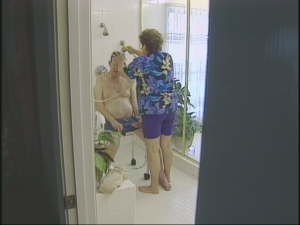
More and more Americans are looking to exert control over where and how they die. We fear dying in pain. We fear that too much will be done to keep us alive, or we fear that not enough will be done. What are the options? Who makes the choices? When is the right moment for final decisions?
In this 90 minute documentary, we unravel the complexities underlying the many choices at the end of life. Although the dying people here along with their caregivers are wrestling with the issue of physician assisted suicide or pain relief that may hasten death, Dr. Kervokian is never mentioned.
We meet Jim Witcher, a veterinarian and horse-breeder in Louisiana, who has ALS, “Lou Gehrig’s” disease. His wife, Suzie, is his sole caregiver – a Herculean task – as ALS robs his body of every physical function.
Jim knows what kind of death he’s headed for and wants to control the timing of it through medication. As a vet he has relieved the suffering of animals many times and wonders why he can’t have that same medical option.
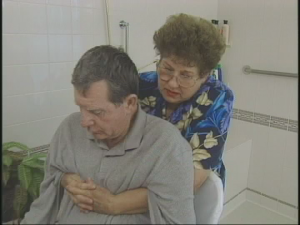
But physician assisted suicide is not legal in Louisiana and his wife’s faith prevents her from helping him with this wish. We watch him, his wife, Suzie, his family and doctors wrestle with his desire for a death with dignity.
In Oregon, we meet Kitty Rayl, who has terminal cancer. She has stopped all radiation and chemotherapy treatment and is now under hospice
care at home and is struggling with the right balance of medication to ensure her quality of life — she wants to be alert to communicate with her family and friends and read — but she needs enough pain medication to cope with her pain. She also wants to take advantage of Oregon’s Death with Dignity Act which allows her to get medication to terminate her life when she wants it.
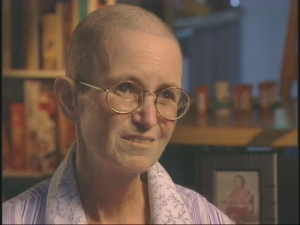
She meets with Dr. Nancy Crumpacher to arrange the details — but she puts it off until it’s too late. She could no longer swallow. Her daughters struggle with whether she had the death she wished in the end. And partly she did — surrounded by her family and friends at home.
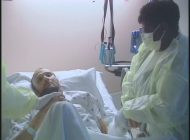
In Charlottsville, Virginia we meet Ricky Tackett who is dying of liver failure. We watch as his doctor and his wife, discuss the options for relieving Ricky’s suffering as he lay in a hospital bed. They agree that terminal sedation is the only way to relieve his delirium and pain at this stage.
As each life is a particular one, so is each death. In this film we witness the dying, their loved ones and caregivers enter into frank conversations about how they feel and think about the choices, control and dignity at the end of life.
Credits: Editor: Alison Amron; Camera: Don Friedell, Bill McMillen, Bob Achs; Music: Michael Small; Field Producer: Paco de Onis; Associate Producer: Valerie Linson; Series Producer: Elena Mannes
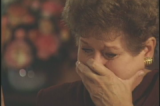
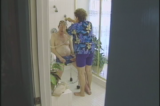
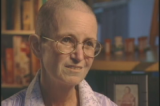
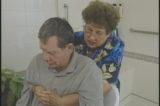
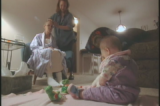
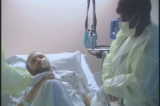
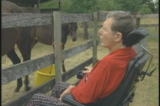
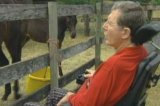
This was a profound and moving series that shaped my views of living and dying. Thanks for sharing this rich and inspiring body of work, Gail.
Where can I obtain or purchase the complete video of this series?
Thank you very much.
Hi Scott, Public Affairs Television used to distribute, but they have changed names and I have an email into them to see who is now distributing the series. I should know in a day or two. Thanks for visiting my archival website. Gail